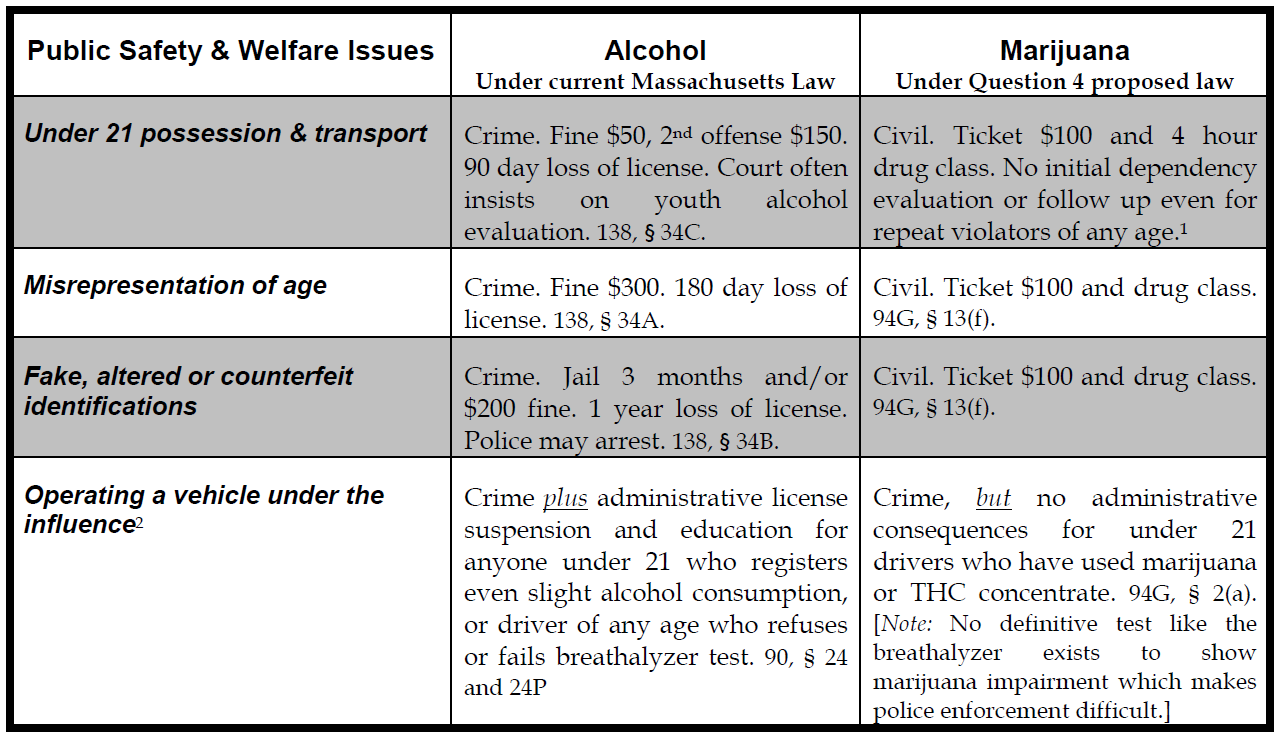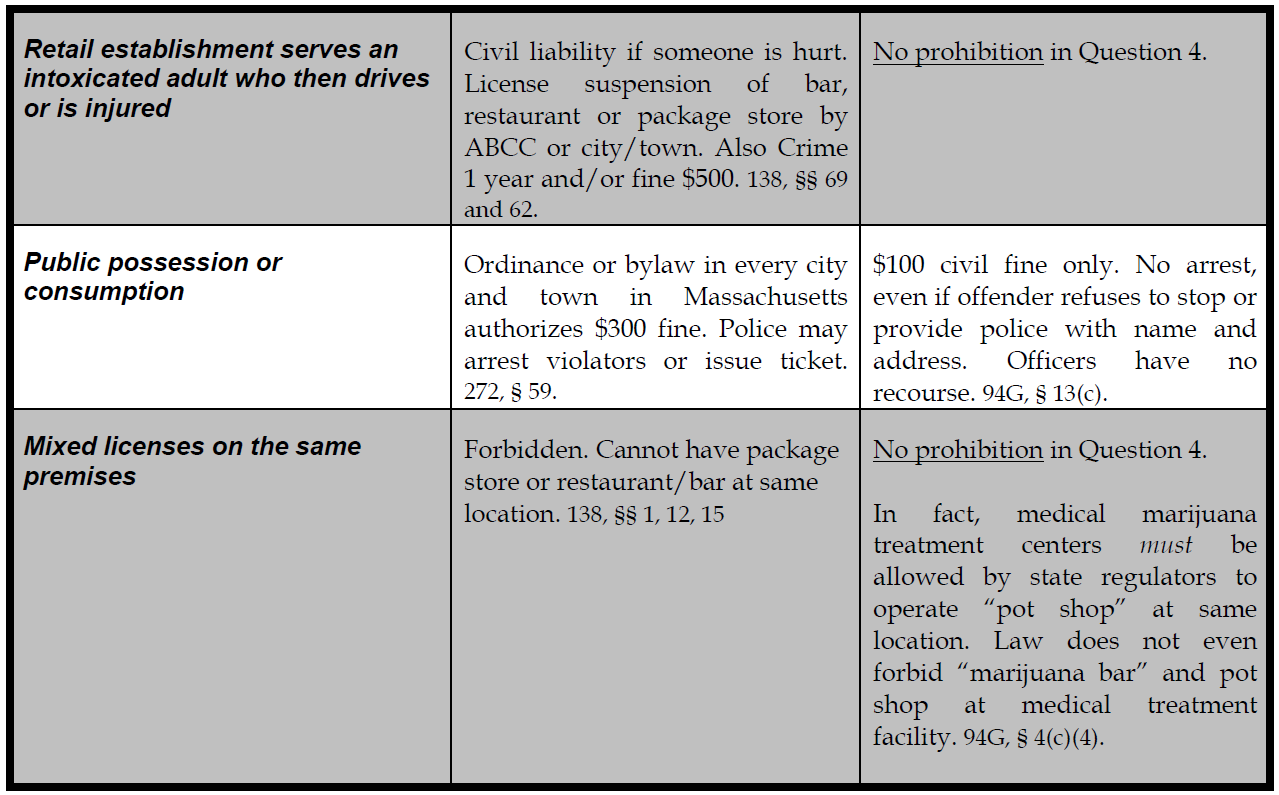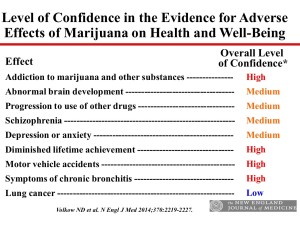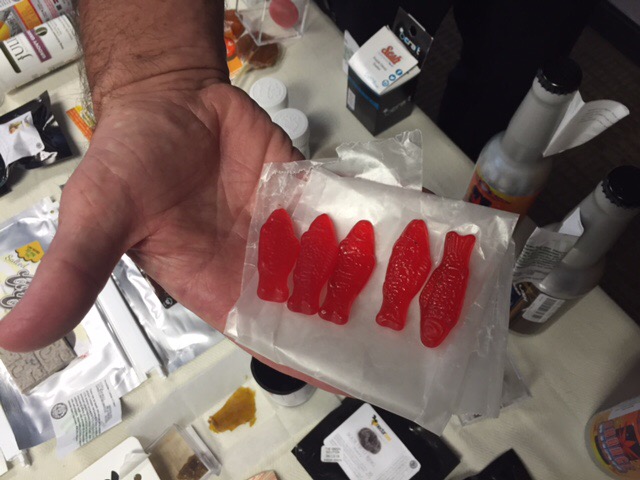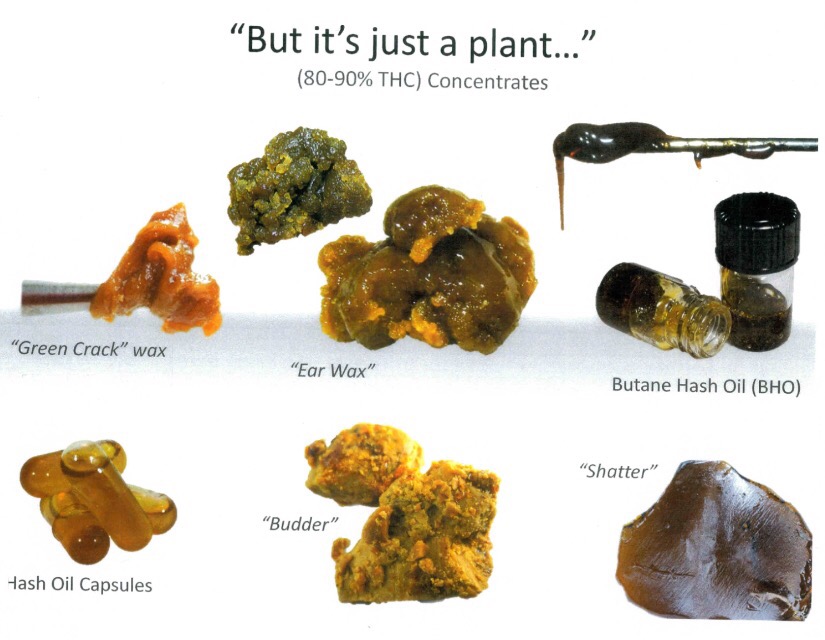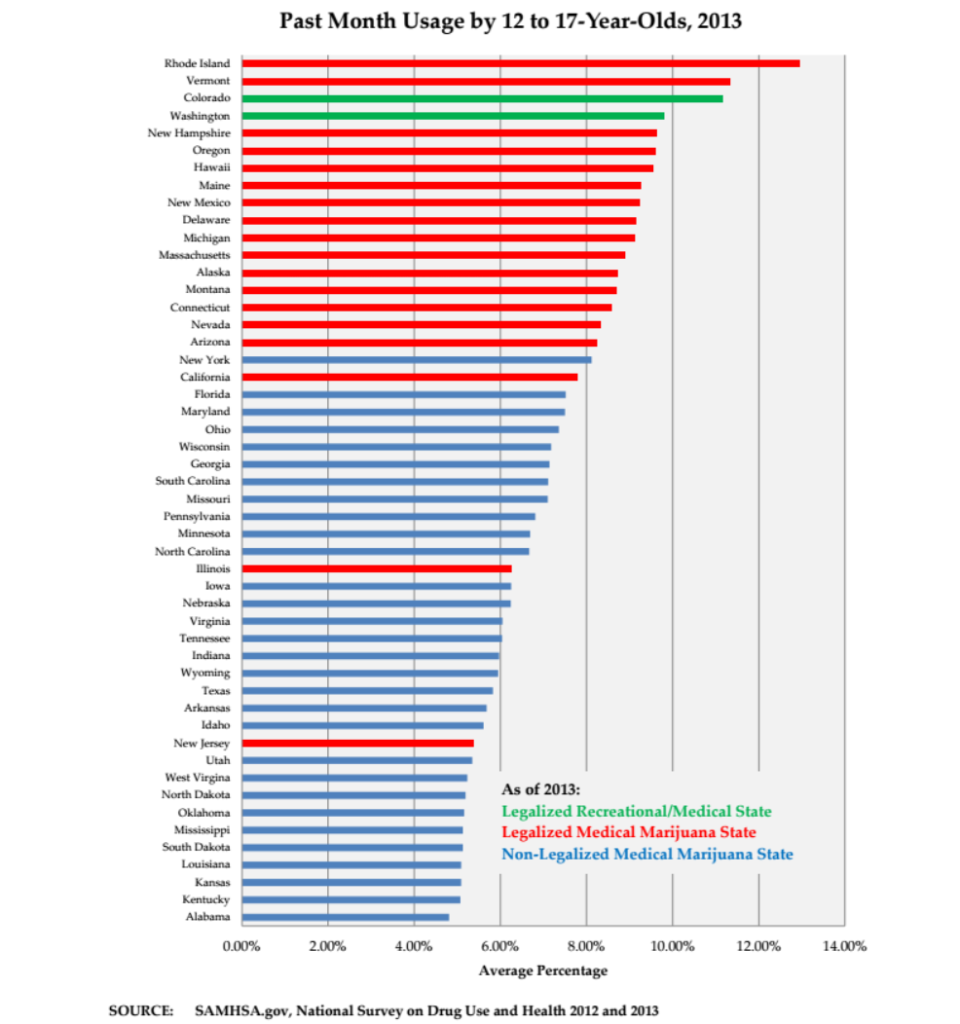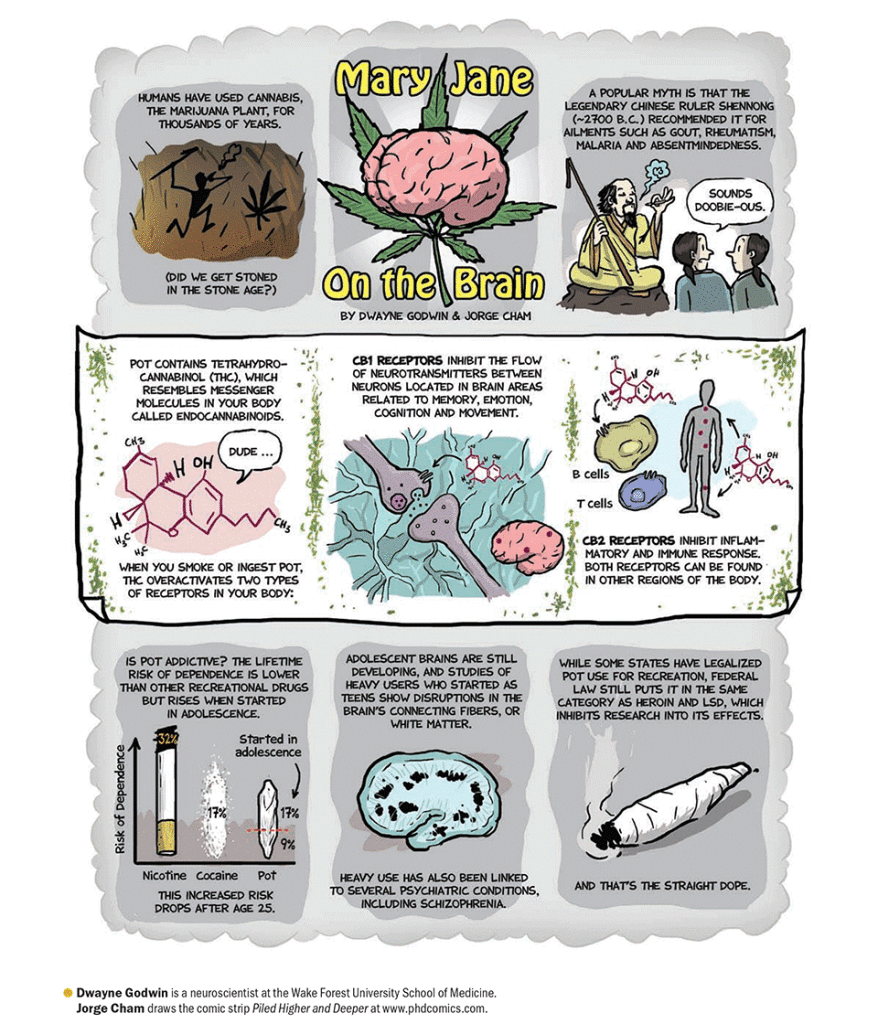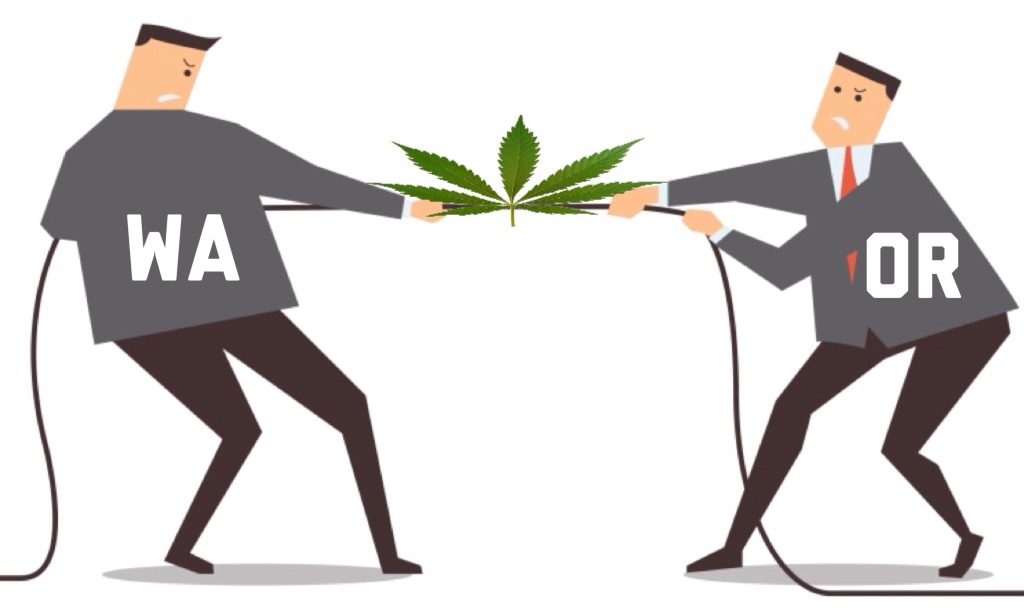 BOSTON – A consortium of clinicians and scientists from across Massachusetts has joined together to publicly release a “Statement of Concern” expressing their disagreement with how marijuana policy is being shaped in the Commonwealth.
BOSTON – A consortium of clinicians and scientists from across Massachusetts has joined together to publicly release a “Statement of Concern” expressing their disagreement with how marijuana policy is being shaped in the Commonwealth.
According to the Statement of Concern, marijuana is being governed and regulated as if it were an “ordinary commodity”, rather than following a Public Health Framework. This is of concern because scientific evidence clearly establishes that marijuana (and specifically the psychoactive chemical THC) has the potential to do significant harm to public health. Harmful effects include, but are not limited to, the risk of addiction, impaired cognitive function, and increased risk of mental illness (including psychosis).
Yet, despite the fact that negative health effects are manifesting in patient populations across Massachusetts with an increase in the availability of marijuana and THC-containing products (including THC vapes), there is a lack of public awareness about the potential dangers of marijuana/THC.
“When public health is not prioritized in the regulation of addictive substances, the public and our young people are put at risk,” reports the consortium in its Statement of Concern. As a result, the consortium recommends that Massachusetts state marijuana laws and regulations meet key public health standards through the regulatory framework that prioritize population-level health over commercial market interests.
The consortium responsible for the document included over 40 professionals from major medical centers, medical schools, and health-related organizations in Massachusetts. These professionals include clinicians, researchers, scientists, and other health and medical professionals.
The Statement of Concern was created to give an advocacy voice to the professionals who know and understand the science, and clinicians seeing an increase in the negative health impacts of marijuana in their patient populations. The Massachusetts Prevention Alliance coordinated and supported the consortium through the drafting process of the document in an effort to provide the most up-to-date, clear and validated science on the public health impacts of marijuana/cannabis/THC commercialization. The document’s purpose is to assist State leaders with their drug policy decisions that serve to protect the health and safety of our youth in the Commonwealth.
It is clear that Lawmakers have always been concerned about the public health impacts of marijuana/cannabis/THC commercialization. This was evident when 121 members of the legislature opposed the law as written in Ballot Question 4 in 2016 and then worked arduously to pass the omnibus bill in 2017 to fix some of the problems with the law. Currently, in Massachusetts, a few of the standards in the public health framework are met in statutory marijuana language (MA General Law). Some standards are met through regulatory language (CCC regulations). A number of the unmet Public Health Standards have been proposed in bills for this 2019 legislative session. To further assist lawmakers a supplemental analysis comparing Massachusetts current marijuana policy to the Public Health Standard for policy making has additionally been provided to all Massachusetts lawmakers as an insert to the Statement of Concern.
Read or download the full Statement of Concern here. Read or download the supplemental “Analysis of PHS vs MA MJ Policy” here.
Note: Production of the “Statement of Concern” was supported by the Massachusetts Prevention Alliance, a private, non-partisan, 501c3 organization. Signatories were not compensated for their endorsement of this statement. For comments or inquiries, please email info@mapreventionalliance.org.


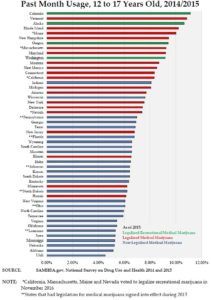



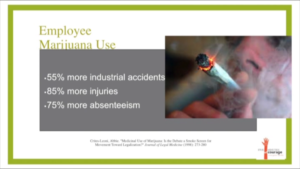 In this second in a series from WestboroughTV, the issue of marijuana legalization and commercialization for recreational purposes is explored through conversation. In this episode, Colorado business consultant Jo McGuire joins hosts Heidi Heilman and Jody Hensley to shed light on what might be coming to Massachusetts should Ballot Question 4 be approved by the voters this November. Employment and workplace issues, types of marijuana and THC products, youth use data in Colorado, taxes and revenue and implications on youth access and the black market from home growing are discussed. A must see for anyone considering which way to cast their vote in Massachusetts, or in Arizona, Maine, and Nevada where similar industry-written questions are on the ballot.
In this second in a series from WestboroughTV, the issue of marijuana legalization and commercialization for recreational purposes is explored through conversation. In this episode, Colorado business consultant Jo McGuire joins hosts Heidi Heilman and Jody Hensley to shed light on what might be coming to Massachusetts should Ballot Question 4 be approved by the voters this November. Employment and workplace issues, types of marijuana and THC products, youth use data in Colorado, taxes and revenue and implications on youth access and the black market from home growing are discussed. A must see for anyone considering which way to cast their vote in Massachusetts, or in Arizona, Maine, and Nevada where similar industry-written questions are on the ballot.

 How’s Legalization Working out in CO?
How’s Legalization Working out in CO? Here is a two-page pdf of reasons why Massachusetts voters should be very concerned about the provisions of Question 4. Please read, download, forward, print, share. And, please vote “No” on Question 4.
Here is a two-page pdf of reasons why Massachusetts voters should be very concerned about the provisions of Question 4. Please read, download, forward, print, share. And, please vote “No” on Question 4.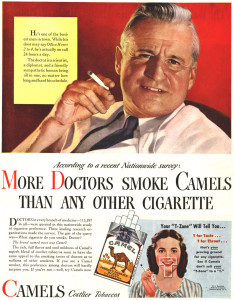 Do you remember the 1990s? In the 1990s, Massachusetts and other states successfully sued the tobacco industry for
Do you remember the 1990s? In the 1990s, Massachusetts and other states successfully sued the tobacco industry for 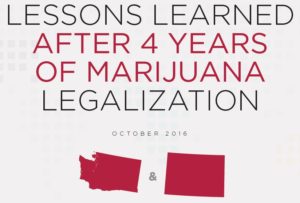 Though it is still early, these “experiments” in legalization are not succeeding. Marijuana commercialization is failing as a public health approach to drug use.
Though it is still early, these “experiments” in legalization are not succeeding. Marijuana commercialization is failing as a public health approach to drug use.



